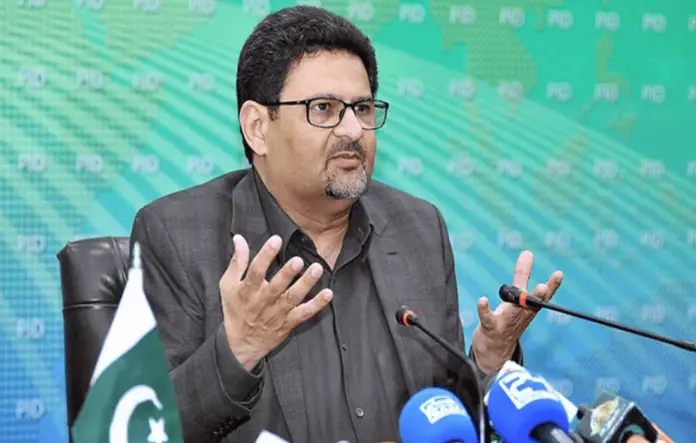Global money lenders are hesitant to lend due to the stagnant economy, which is causing obstacles in repaying loans. This was stated by former Miftah Ismail in response to the country’s ongoing payment crisis. Addressing the German-Pakistan Business Gathering, Ismail highlighted the economic imbalance that hampers the loan repayment process. He further mentioned that Pakistan is burdened with debt obligations of $22-24 billion annually, along with a total debt of $100 billion owed to the world. Additionally, Pakistan is required to repay a debt of Rs6,000 billion this year.
The former minister emphasized the need to revitalize the International Monetary Fund (IMF) program as a means to uplift the economy. Ismail also expressed concerns about the inadequate functioning of institutions, which he claimed are controlled by the affluent and powerful. He lamented the inefficiency of Pakistan’s political and judicial systems, stating that they are slow in delivering justice. Ismail questioned how a country can develop when half of its children are out of school and suffer from malnourishment.
Moreover, Ismail discussed the issue of population growth and criticized the government’s approach in addressing it, citing ineffective governance in Pakistan. He expressed sadness by comparing Pakistan’s progress to that of other countries, specifically highlighting the vast difference in exports between Pakistan and Vietnam. In 1992, Pakistan and Vietnam had comparable export levels, but currently, Vietnam’s exports stand at $300 billion, while Pakistan is projected to achieve only $27 billion in exports this year.
Despite the unstable state of Pakistan’s economy, Ismail attributed difficulties in debt repayment to currency fluctuations, as the value of the dollar continues to rise. He stressed the need to prioritize exports as the foundation for progress in the next 2-3 years, citing the importance of the labor force and the government’s role in improving it. Ismail concluded by proposing suggestions to enhance governance, such as establishing additional provinces, and emphasized the crucial role of education in the country’s success, urging the government to prioritize it.







